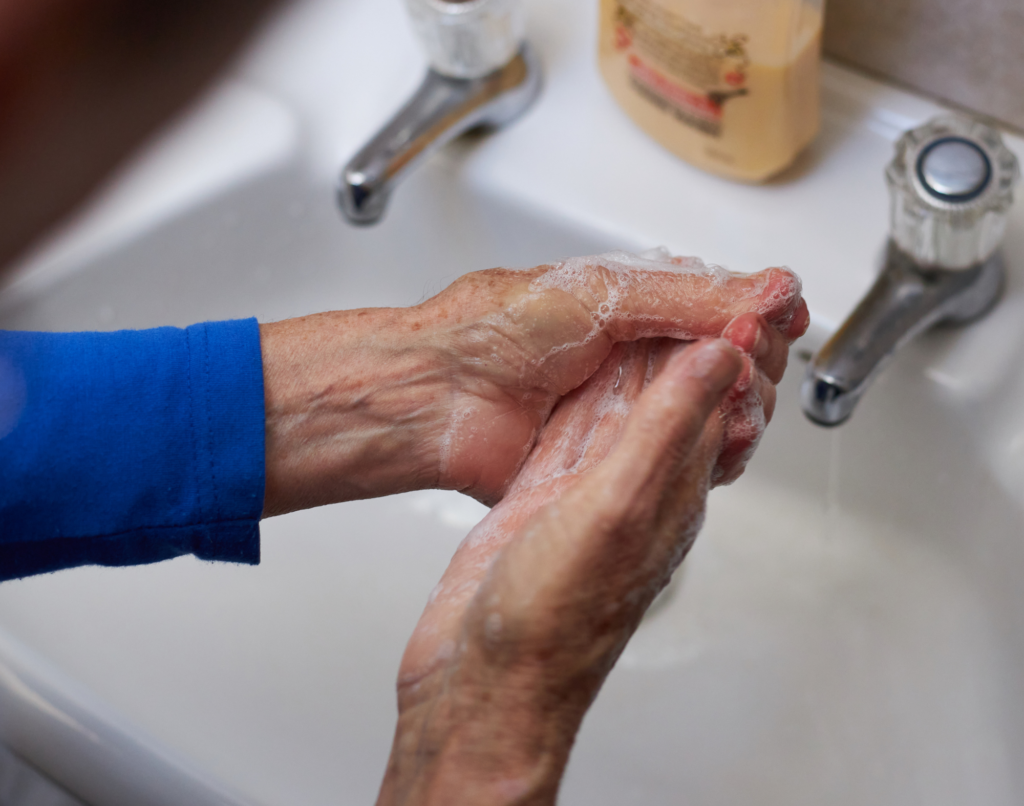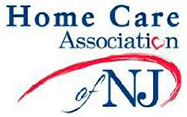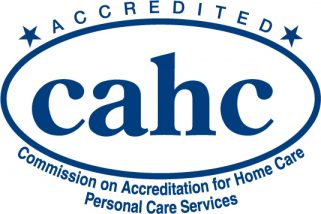Adults over 60 are at a higher risk for viruses such as influenza and coronavirus. The risk increases for those over 80 or with underlying medical conditions. One contributing factor could be the weakened immune system that comes with age. Senior Citizens and their families are left wondering what they can do to prevent the spread of viruses.
Social Distancing
Those at high risk should engage in “social distancing.” This means keeping space (about 6 feet) between yourself and others. Seniors are advised to stay home as much as possible during an outbreak in their community. When you go out in public, avoid large gatherings, limit close contact with others, and wash your hands frequently. Sick family members and friends should wait until they are well to visit elderly loved ones. Try video chatting instead. Also, older adults should avoid cruises and unnecessary air travel during an outbreak. For example, the Centers for Disease Control (CDC) have outlined clear actions that reduce your risk of contracting COVID-19, the disease caused by the coronavirus.
Everyday Precautions
Avoid close contact with anyone who is sick. Sick family members and friends should wait until they are well to visit elderly loved ones. Try video chatting instead. Cover your mouth and nose with a tissue or your sleeve. Also, avoid bringing your hands to your face, especially the nose, eyes, and mouth. Routinely clean and sanitize your home.
Likewise, wash your hands often, following the CDCs recommended method of scrubbing with soap and water for 20 seconds. If soap and water are not available, use hand sanitizer with at least 60 percent alcohol. Clean your hands:
- Before and after eating
- After using the restroom
- After blowing your nose
- Any time you cough or sneeze
- After spending time in a public place
Stock Up
Having supplies on hand means fewer trips into the community. Be prepared to stay at home for a while. Stock up on household items and non-perishable groceries. Contact your healthcare provider and pharmacist about getting extra medication. Likewise, you can also see about having medication delivered right to your home. Have over-the-counter medicine and supplies on hand for treating fever and cold symptoms at home.
Watch for Symptoms
Pay attention to possible symptoms of COVID-19, including fever, cough, and shortness of breath. If you experience mild symptoms, the CDC recommends staying home and calling your doctor. Let your provider know if you’ve had potential contact with the coronavirus. Seek medical attention immediately if you have emergency warning signs such as:
- Difficulty breathing or shortness of breath
- Persistent pain or pressure in the chest
- New confusion or inability to rouse
- Bluish lips or face
Individuals with underlying medical conditions should consult with their health care provider for more information on monitoring their health for COVID-19 symptoms.
For more information regarding influenza and the coronavirus, you can visit the CDC web site at cdc.gov.
Anita’s Angels, Inc. is here to assist Seniors in their own homes. Anita’s Angels, Inc. – Families Helping Families. Call us at 908-788-9390.





